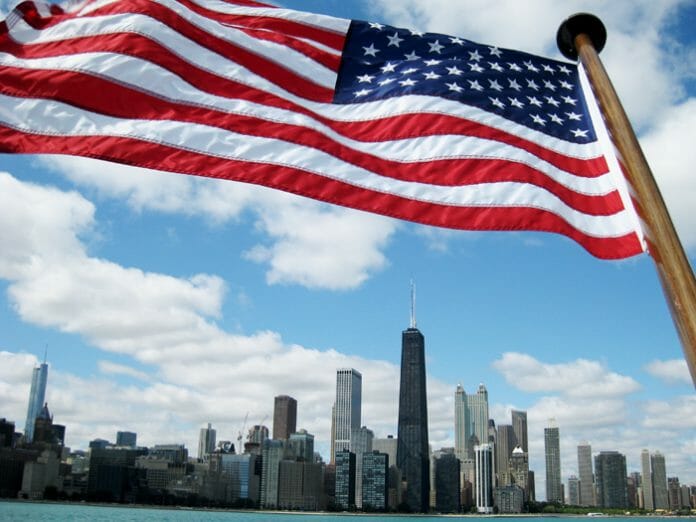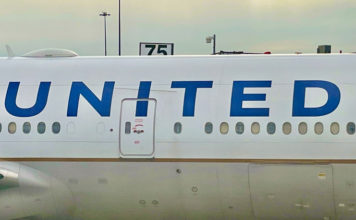
TravelingForMiles.com may receive commission from card issuers. Some or all of the card offers that appear on TravelingForMiles.com are from advertisers and may impact how and where card products appear on the site. TravelingForMiles.com does not include all card companies or all available card offers.
Some links to products and travel providers on this website will earn Traveling For Miles a commission which helps contribute to the running of the site – I’m very grateful to anyone who uses these links but their use is entirely optional. The compensation does not impact how and where products appear on this site and does not impact reviews that are published.
Following a Supreme Court ruling earlier this week the long debated US travel ban comes into partial force today. Flyers traveling on passports issued by Iran, Libya, Syria, Somalia, Sudan and Yemen are the people who will be most affected by the new regulations. With help from Stone Grzegorek & Gonzalez LLP, a Los Angeles based immigration law firm, I’ve taken a look at the consequences of the Supreme Court’s actions and what happens next.
On Monday the US Supreme Court reinstated substantial portions of the “Trump Travel Ban” when it deferred a full decision on the issue until the court’s next session in the fall.
David Strashnoy of Stone Grzegorek & Gonzalez LLP writes:
The Court ruled that the Travel Ban may not be enforced against foreign nationals who have a credible claim of a bona fide relationship with a person or entity in the United States, but that all other impacted foreign nationals are subject to the provisions of the Executive Order (“EO–2”).
The Court specifically provided examples of relationships that would qualify for a Travel Ban exemption, such as an individual who wishes to enter the United States to live with or visit a family member. Also exempted are individuals with a formal, documented relationship with an U.S. entity such as a student admitted to an American University, a worker who accepted an offer of employment from an American company, or a lecturer invited to address an American audience.
The Court added that an individual entering into a relationship with an American entity for the sole purpose of evading the Travel Ban would not qualify for an exemption, specifically stating that a nonprofit group devoted to immigration issues may not contact foreign nationals from the designated countries, add them to client lists, and then secure their entry by claiming injury from their exclusion.
Because EO-2 already allows waivers for individuals with bona fide relationships in the United States, the Court’s decision serves to substantially reinstate Trump’s Travel Ban.
The new regulations will be in force for at least the next 90 days while the Supreme Court is no longer in session – the Supreme Court reconvenes on the first Monday of October.
 The United States Supreme Court – Image courtesy of Wiki Commons Media
The United States Supreme Court – Image courtesy of Wiki Commons Media
Some Restrictions Are Tighter Than They May Seem
The BBC has obtained further clarification as to what constitutes a family relationship that would qualify for a Travel Ban exemption and they do not include the following:
- Grandparents
- Aunts
- Uncles
- Nieces
- Nephews
- In-laws
- Grandchildren
- Extended family
Put simply, if you’re traveling on one of the affected passports, claiming you’re visiting one of the above will not be sufficient to have the Travel Ban waived.

Some Good News
Contrary to what earlier Travel Bans have attempted to bring into law, the current incarnation of the ban will not affect those who already hold valid visas to visit or live in the US.
In addition, those holding dual nationality where one passport is not affected by the ban may travel freely to/from the United States on the unaffected passport.
What Now?
The Supreme Court goes on hiatus until the first week in October so, even if we see a raft of legal challenges to the ban (as we have seen in the past), nothing will change until the Court is back in session….so we’re stuck with the ban for now.
Thoughts
I’m not sure the Supreme Court comes out of this looking too good.
This is clearly an issue that ranks very highly for both the US government and the people of the United States so I’m not entirely sure why the Supreme Court Justices couldn’t postpone their vacations to the Hamptons, Martha’s Vineyard or wherever else the overly privileged go for the summer and hear the case now.
Through their inaction the Justices have effectively given the US Government what it wanted by default…and that seems a little strange to me.
The whole reason for the existence of the Supreme Court is to provide checks and balances over the other 2 branches of government (the Executive and Legislative branches)…..so I don’t see how going away for 3 months while the Executive branch imposes a rule that may or may not be legal is providing any kind of check or balance.
Perhaps I’m missing something? If anyone would care to enlighten me please do so in the comments section below.







![The ideal 4 card American Express Membership Rewards team [Updated] a glass door with a picture of a man](https://travelingformiles.com/wp-content/uploads/2021/06/Amex-Centurion-Lounge-SFO-featured-741-356x220.jpg)








